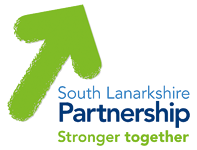Health and Wellbeing

Why is it important?
We know mental health is important for supporting positive outcomes for children, young people and families. The World Health Organisation highlights that:
“Mental health is a state of mental wellbeing that enables people to cope with the stresses of life, realise their abilities, learn well and work well, and contribute to their community.”
There is evidence to show that the mental health of children and young people in Scotland isn’t improving e.g., the most recent Scottish Schools Adolescent Lifestyle and Substance Use Survey shows this, and Covid-19 has exacerbated inequalities for the most vulnerable in terms of mental health.
Protecting mental health at an early age and providing early support is vitally important to ensure future mental wellbeing and resilience, and wider life outcomes.
Our Children’s Services Partnership is committed to improving the health and wellbeing for all children, young people and families in South Lanarkshire. This reflects local and national priorities including:
- Scottish Government Mental Health Strategy (2017-2027);
- Recommendations from the Children and Young People’s Mental Health Taskforce (2019);
- Creating Hope Together, Scotland’s Suicide Prevention Strategy, 2022-2032; and
- Lanarkshire’s Mental Health and Wellbeing Strategy 2019-2024.
South Lanarkshire has taken a whole systems approach to supporting mental health and wellbeing, using available data and engaging with partners, children, young people and families. This approach emphasises support that is:
- Easily accessible;
- Accessible to all;
- Built around prevention and early support;
- Strengths based;
- Built on strong and consistent relationships;
- Empowering;
- Offering the right support at the right time; and
- Focused on ensuring a ‘no wrong door’ approach, so that children and young people tell their story only once.
Where are we now?
We have established or extended a number of community-based initiatives for our children and young people. This includes: the delivery of Kooth, an online wellbeing and counselling support for children and young people; delivery of The Blues programme by Action for Children; and the procurement SAMH to support delivery of peer support programmes in schools and mental health and wellbeing workshops for families and staff. In addition, there has been an increase in capacity to deliver focused supports to the most vulnerable children and young people through the Trauma Recovery Service and additional practitioners to support those who are care experienced.
The supports offered have been informed by the voices of children and young people and we are working with children and young people to design further new services.
Our counselling through schools approach supports access to counselling for every primary and secondary school across South Lanarkshire for children and young people over 10. Numbers of self-referrals have risen, and a significant majority of children and young people who complete counselling report wellbeing benefits in terms of their wellbeing.
We have continued to focus on providing staff with the relevant skills to help them respond to children and young people who may be at risk of self-harm and suicide. An increased number of training sessions in Applied Suicide Intervention Skills Training (ASIST) has enhanced the knowledge and skills of staff across South Lanarkshire. In addition, training in the use of ‘Lifelines Lanarkshire’ multi-agency guidance has been delivered to key children’s services staff within all mainstream secondary schools, Youth Family and Community Learning and Social Work Resources.
We have contributed to the development of the Scottish Government’s Mental Health and Wellbeing Whole School Framework document and have shared this work across our partners.
What will we do next?
We have agreed a small number of areas for change as part of this plan.
By the end of this plan, we aim to achieve the following outcomes:
Every child and young person will be able to access support which helps improve their mental health and emotional wellbeing:
- Improve maternal and infant mental health;
- Improve support offered to children and young people who may be at risk of suicide and self-harm;
- Improve whole school approaches to mental health and wellbeing;
- Improve visibility and accessibility of community mental health supports and services; and
- Develop staff professional learning and development to ensure their own and others’ wellbeing established.



